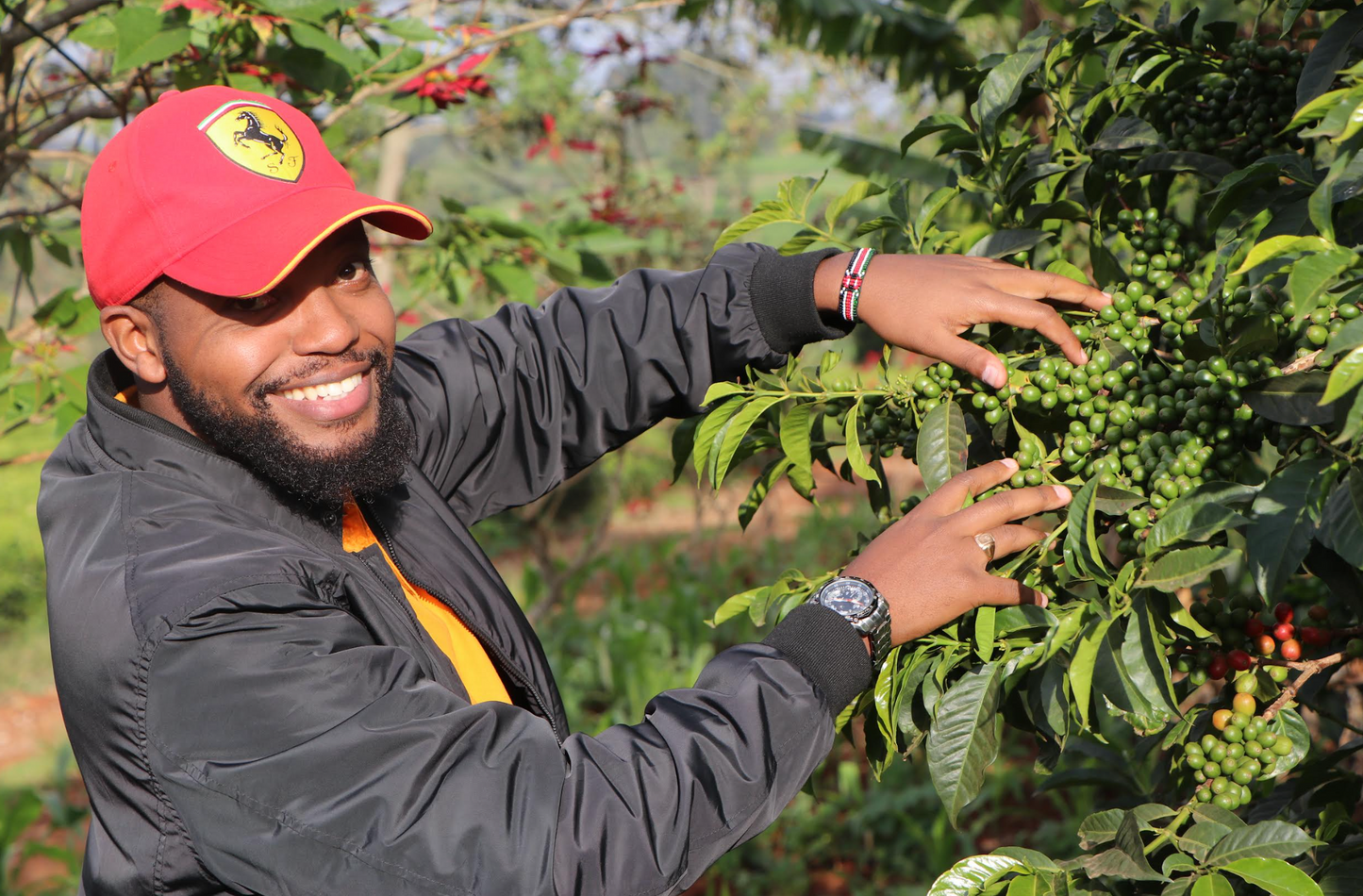
Photo by Jamii Coffee
--------
With the (re)launch of this natural processed Kenyan coffee from Imani Farm, we wanted to share a little bit of information about this coffee, it’s history, and some updates about the importer who shared it with us. This short blog post will primarily be a summary of the information that Jamii has provided us, with maybe some of our thoughts sprinkled in here and there. However, we recommend that you take a look at the farm’s website, where you can learn more about this coffee straight from the people who grew it.
Here’s some of our main take aways about this coffee, besides it tasting delicious, of course:
The name “Imani” means ‘Faith’ in Swahili and is the current name of the farm, which is located Kiambu county in central Kenya, high up at 2,015 meters above sea level, or as us coffee folks like to say “masl”. We say current name because it’s current owner, Derek Mbugua, is currently working on renaming it to John Reuben Mbugua. Now that we have the current context, let’s bring it back to the beginning...
In the 1920s, British colonial settlers established this 22 acre farm and planted a bunch of SL28 and SL34 coffee plants. British colonial settlers in Kenya? Let’s not forget - the coffee industry that we know today was founded on colonialism and slavery. Check out some of the links we shared in this previous blog post about the term"relationship coffee" for some further reading! Derek’s grandfather, John Reuben Mbugua, bought this farm from these settlers in 1967 and gave it it’s current name “Imani Farm”, but unfortunately had to abandon the farm in the 1980s due to unsustainably low global coffee prices. That’s where Derek and Francis come in! Derek later acquired the farm, not planning to use it for coffee production until he and his cousin Francis (founder of Jamii) ultimately decided that resuming coffee production might be a good idea after all.
Quick summary of important people!
Derek currently owns the farm. His grandfather was John Reuben Mbugua and his cousin is Francis, the founder of Jamii Importers, and a true friend to D&W.
Nowadays, Derek Mbugua has been practicing fully organic production and plans to rename the farm to John Reuben Mbugua, after his late grandfather. Derek also runs a nursery full of SL28 and SL34 coffee babies which he sells to other farmers in the area.
According to World Coffee Research, both SL28 and SL34 produce high quality coffee, but are also susceptible to some diseases. The "SL" comes from the former Scott Agricultural Laboratories, which is now known as the National Agricultural Laboratories, in Kabete, Kenya. Scott Labs was created by the colonial British government in 1922. Here, they conduct agricultural research and provide training to Kenyan farmers. They found that SL28 plants were drought tolerant, and SL34 plants produced exceptional quality, so these seeds were distributed throughout Kenya.
Check out Francis’ recent article in one of our favorite coffee news sources, Daily Coffee News, where he gives us an inside look into what he’s been up to with Jamii Coffee. We’re so proud to be working with Jamii, and are grateful to be able to roast and share these coffees with you.
